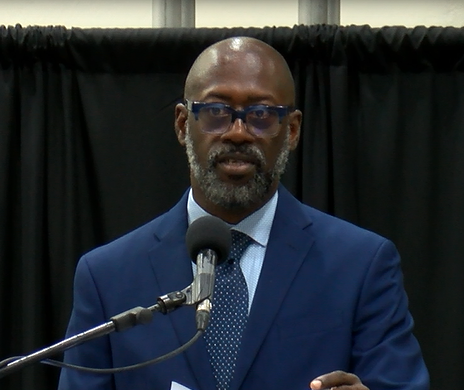Alarming Rise of Youth-Driven Violence in Barbados Prompts Call for Urgent Intervention in Schools and Homes

November 14, 2024
Criminologist's report reveals a rise in serious crimes committed by school-aged children in Barbados, prompting calls for urgent intervention from education stakeholders to address youth-driven violence.
A criminologist’s report revealing that an alarming number of school-aged children are committing serious crimes has prompted education stakeholders to demand urgent intervention at both school and home to combat a rising wave of youth-driven violence.
President of the Barbados Union of Teachers (BUT) Rudy Lovell and spokesperson for the Group of Concerned Parents of Barbados, Paula-Ann Moore, who told Barbados TODAY they were taken aback by the revelations, both agreed a dedicated facility to cater to the needs of deviant youth could assist in addressing the issue.
Lovell said the union had been expressing deep concern about the growing violence in schools for several years, adding that he hoped the matter would now be treated as a priority given its impact on society.
Criminologist in the Attorney General’s Office Kim Ramsay on Tuesday revealed that the age of offenders was “significantly decreasing”, with many individuals between 11 and 15 years old being charged with serious offences such as murder and robbery. She noted that 16-year-olds were also committing murder and that increasingly, young people were victims of violent crimes as well.
Earlier this month, another government expert on crime, Cheryl Willoughby, the director of the Criminal Justice Research and Planning Unit, reported that the average age of people accused of murder over the past six months was 17 to 18.
The BUT president said the union would soon survey the extent to which teachers feel safe in their work environments.
Lovell said: “We are deeply concerned because these children occupy school environments and at any time these behaviours can be manifested in the school by these same children. The union has been concerned for a long time. We can no longer afford to ignore violence and indiscipline in schools as they have reached alarming levels. Children with conduct disorders are causing disruptions in classrooms, even in primary schools, and without specialised support, both they and their peers will continue to struggle.
“We are seeing children in primary school as young as eight exhibiting violent tendencies to the extent where some of them have to be suspended from school. This is of major concern because if you have children at such an early age committing these offences, what will happen if they do not get immediate intervention? They will carry this behaviour into secondary school and into the community.”
Lovell said the union was also worried that many students who engaged in violent behaviour at school were not being held accountable for their actions.
He said: “They go on to be emboldened, taking that lack of accountability with them as they get older and go on to commit crimes. Being held accountable doesn’t mean punitive action, but there needs to be some form of intervention, as no form of intervention allows the bad behaviour to continue because there is no feeling that what you are doing is wrong. Some children who get the right guidance will change their behaviour. We also have to consider that whatever interventions are made at school can be undone when children go back home. A child can spend five hours at school with modelled intervention to address their behaviour, but when that child re-enters the home environment, it could undo what was accomplished during the day.”
The BUT leader suggested that a dedicated facility be established to cater to the needs of deviant youth, stressing that parents also had to play a greater role in ensuring their children have proper social conduct.
“There is an urgent need to establish dedicated facilities with trained counsellors to address the unique needs of these students. Parents must also play a vital role in combating deviant behaviour by teaching conflict resolution at home and promoting dialogue over aggression.”
Lovell added that he was also “troubled” that some educators were underreporting violent incidents in schools and sweeping the problems “under the rug”, allowing them to fester.
The spokesperson for the Group of Concerned Parents of Barbados, Paula-Ann Moore, said violence among the youth was a complex social problem and therefore needed a multi-sector approach. However, she agreed that a dedicated facility for deviant students could be part of the solution.
“Solutions have to be based on short, medium and long-term timelines, and I would be bold as to say that we’re at a crisis level now and there’s immediate action that needs to be taken,” she said, adding that the Ministry of Education’s policy to address violence in schools needed to be effective.
She added that if a new facility is established to deal with deviant youth, it must be well-resourced and implement programmes aimed at behavioural modification.
Moore also called for a specialised parenting programme to support parents who are struggling with rearing their children.
sheriabrathwaite@barbadostoday.bb


